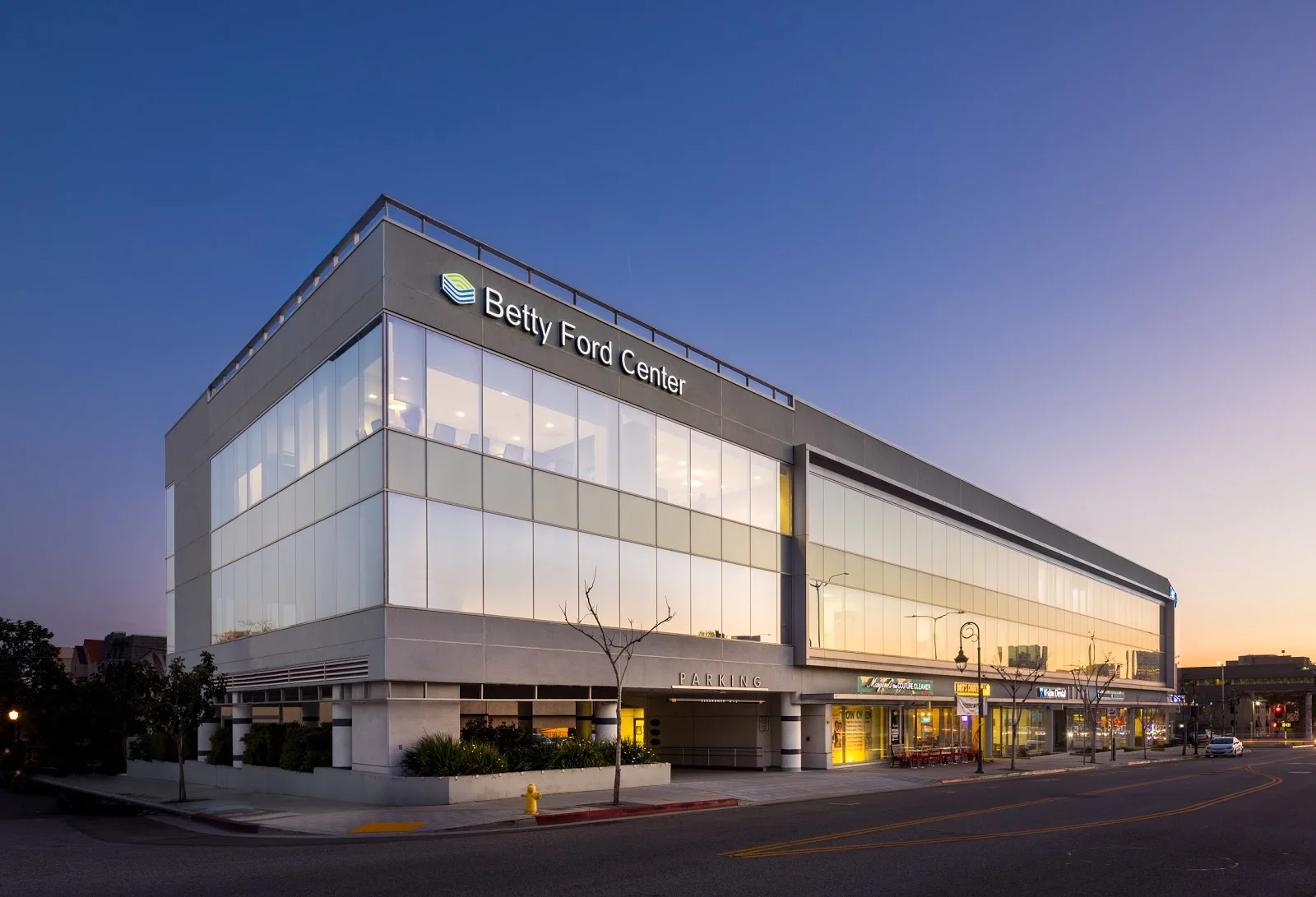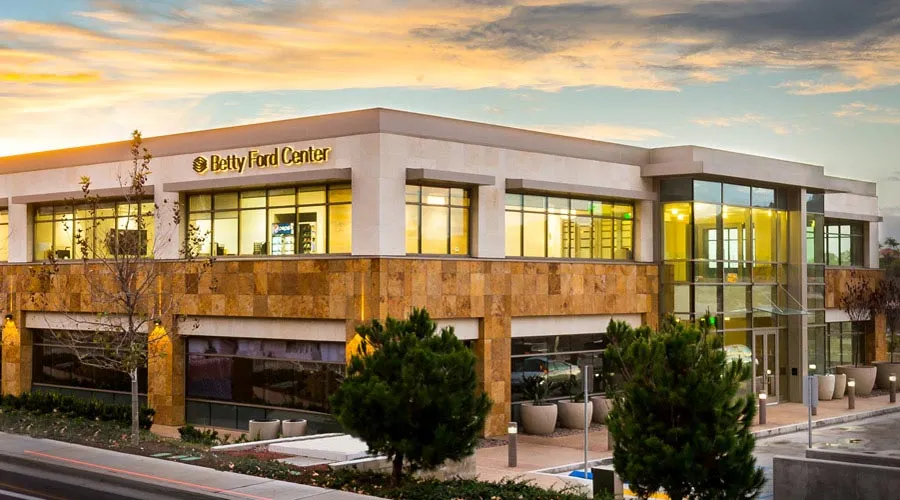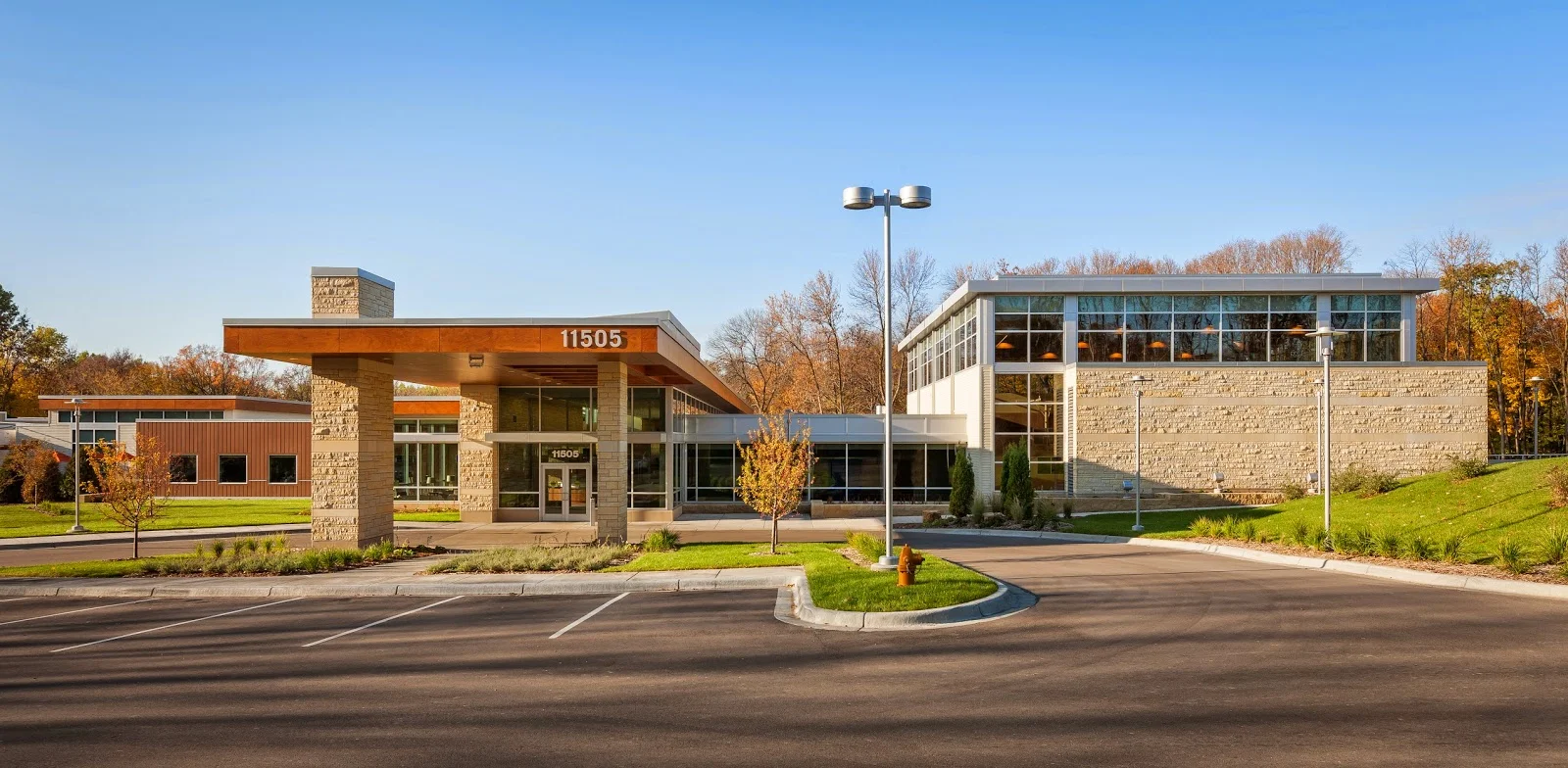Betty Ford Center Information
Treatment
Who We Treat
- Male and Female
- LGBTQ+
Treatment Focus
- Alcohol
- Co-Occurring Disorders
- Drug Addiction
- Intensive Outpatient Program
- Personalized Treatment
Approaches
- Evidence-Based
- Minnesota Model
- Family Therapy
- Group Therapy
- 1-on-1 Counseling
- 1-on-1 Counseling with Clinical Psychologist
- Personalized Treatment
- Life Skills Training
- Relapse Prevention Counseling
Conditions We Treat
- Depression
- Anxiety
- Post Traumatic Stress Disorder (PTSD)
- Grief & Loss
- Trauma
- Codependency
- Grief and Loss
- Anger
- Internet Addiction
- Stress
- Co-Occurring Disorders
Substances We Treat
- Alcohol
- Benzodiazepines
- Heroin
- Opioids
- Cocaine
- Methamphetamine
- Marijuana/Cannabis
Languages
- English
- Spanish
Aftercare
- Intensive Outpatient Program
- Aftercare Group Therapy
- Support Meetings
Level of Care
- Outpatient
- Intensive Outpatient Program (IOP)
- Day Treatment
Experience
On-Site Amenities
- Access to Nature
- Luxury
Personal Amenities
- Air-Conditioned Rooms
On-Site Activities
- AA/NA Meetings
- Alternative Meetings
Accreditations
-
NAATP
The National Association of Addiction Treatment Providers (NAATP) accreditation for addiction and behavioral health is a recognized and respected certification that signifies a treatment center's commitment to delivering high-quality services in the field of addiction and behavioral health. It serves as an assurance of compliance with industry standards and best practices, ensuring that individuals seeking help receive effective and ethical care. Accreditation from NAATP demonstrates a facility's dedication to maintaining rigorous standards, fostering accountability, and prioritizing the well-being and recovery of its clients.

-
The Joint Commission
The Joint Commission accreditation for addiction and behavioral health signifies that a facility has met rigorous standards in patient care, treatment, and safety. This recognition assures patients and professionals of the facility's commitment to providing high-quality, evidence-based care in the fields of addiction and behavioral health, fostering trust and confidence in their services.

-
State department of health
Government agencies issue State Licenses, granting permission to rehabilitation organizations to conduct their business operations lawfully within specific geographic regions. Generally, the particular rehabilitation programs offered by a facility and its physical location dictate the necessary licenses needed for legal operation.

Additional Locations
Betty Ford Center Accepts The Following Insurance Plans
Find the best treatment options. Call our free and confidential helpline today!


























